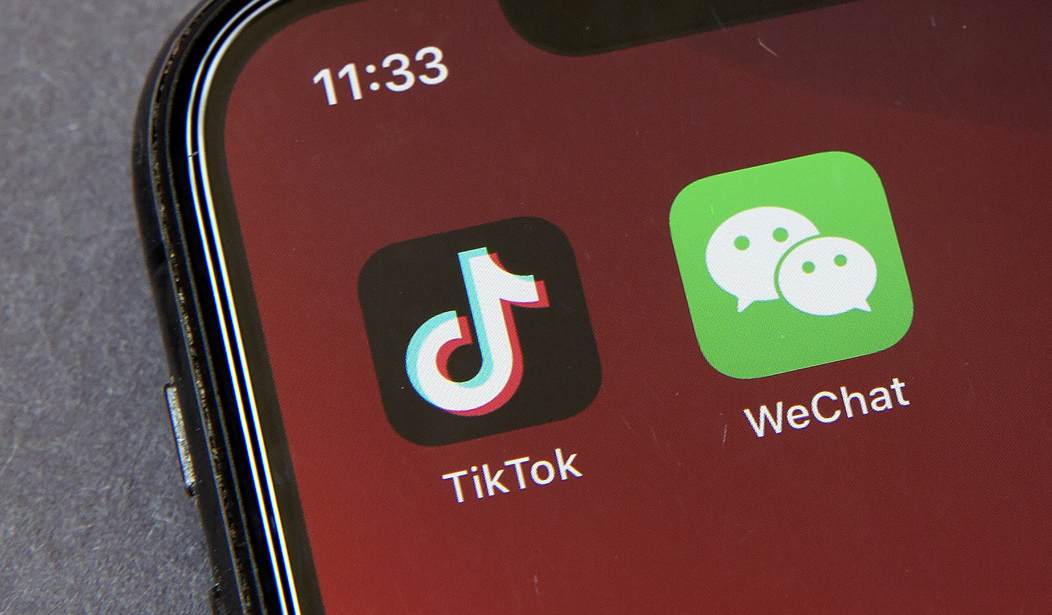TikTok is already fighting for its life in America. Congress passed and President Biden signed a law which requires the Chinese company to either sell its US operation or be banned by January. The company is still fighting that in court. Now TikTok has been sued by a group of 13 states who allege the site harm's the mental health of children.
A bipartisan group of 14 attorneys general from across the country filed lawsuits on Tuesday against TikTok, alleging that the platform has “addicted” young people and harmed their mental health.
The lawsuits take issue with various elements of the TikTok platform, including its endlessly scrolling feed of content, TikTok “challenge” videos that sometimes encourage users to engage in risky behavior and late-night push notifications that the attorneys general claim can disrupt kids’ sleep...
“TikTok’s underlying business model focuses on maximizing young users’ time on the platform so the company can boost revenue from selling targeted ads,” the attorneys general said in a statement. “TikTok uses an addictive, content-recommendation system designed to keep minors on the platform as long as possible and as often as possible, despite the dangers of compulsive use.”
In addition to compulsive use, the lawsuits take aim at the filters on the site.
The states have also taken umbrage with beauty filters on TikTok — technology that alters the faces of users — saying that they are especially problematic for young women. New York’s lawsuit cited a study saying that 50 percent of girls believe they do not look good without editing. “TikTok is well aware that its beauty filter features lead to unhealthy, negative mental and physical disorders” but chooses to keep them on the platform anyway, the state said.
Many details of the new lawsuits are redacted but the NY Times notes that similar redacted material filed in a lawsuit by Nebraska this spring has since been revealed.
TikTok employees acknowledged that its algorithm had a “‘slot machine’s effect’ on young people, according to Nebraska’s filing. Other documents, the state said, showed that TikTok internally referred to American teens as a “golden audience,” noting “the younger the user, the better the performance,” referring to their engagement with the app.
The same app exists in China as Douyin, but there it has much more internal regulation, limiting teens to 40 minutes at one time and restricting usage at night. But in the US, TikTok doesn't seem to care how their product impacts the kids using it. Currently, 170 million Americans use TikTok and more than half of teens aged 13-17 use it.
TikTok put out a statement calling the lawsuits "incredibly disappointing."
We strongly disagree with these claims, many of which we believe to be inaccurate and misleading. We're proud of and remain deeply committed to the work we've done to protect teens and we will continue to update and improve our product. We provide robust safeguards, proactively remove suspected underage users, and have voluntarily launched safety features such as default screentime limits, family pairing, and privacy by default for minors under 16. We've endeavored to work with the Attorneys General for over two years, and it is incredibly disappointing they have taken this step rather than work with us on constructive solutions to industrywide challenges.
Even if TikTok sells its US operation, something China has already said it will not allow, the new lawsuits would probably not be dropped. That means whoever might be thinking about making an offer has to consider the legal pushback as a potential long term drain on resources. Will anyone want the company not knowing how it will operate in the wake of these lawsuits? We probably won't have to wait too much longer to find out.
Finally, the CDC just released a new report connecting social media among teens to a host of bad outcomes.
Overall, approximately three fourths of U.S. high school students reported using social media at least several times a day. Frequent social media use among students was associated with higher prevalence of bullying victimization at school and electronically, persistent feelings of sadness and hopelessness, having seriously considered attempting suicide, and having made a suicide plan. Associations between frequent social media use and these health behaviors and experiences differed by sex and sexual identity.
There are lots of good reasons to get Chinese owned TikTok away from Americans but it seems to be especially true for teens.








Join the conversation as a VIP Member